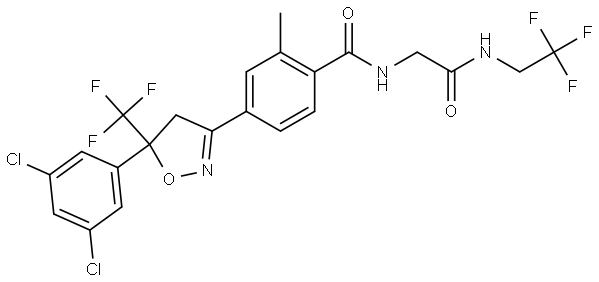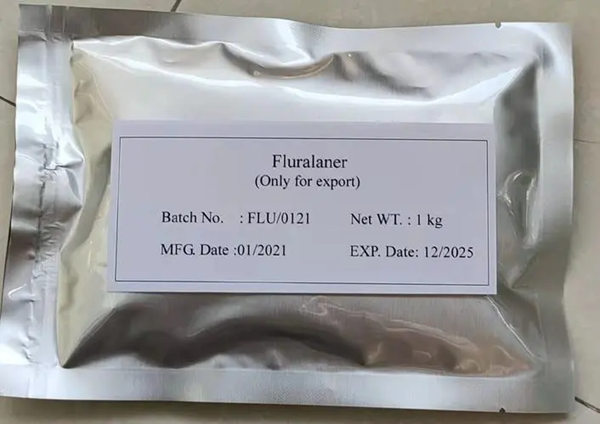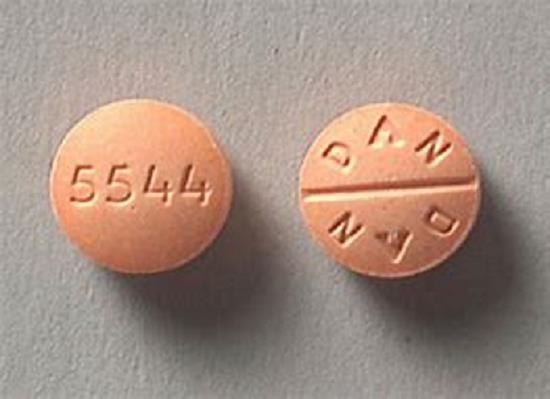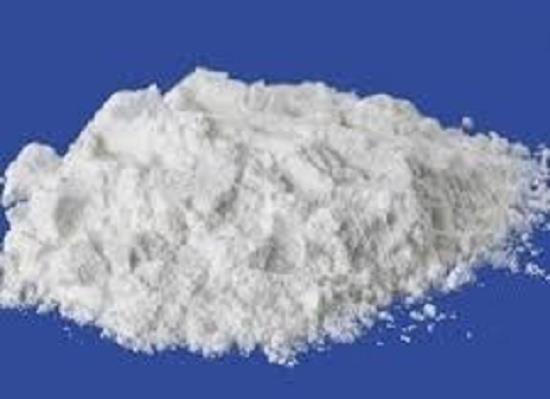Fluralaner: pharmacokinetics, efficacy and safety
General Description
Fluralaner, a medication that has gained popularity for its effectiveness in treating sarcoptic mange in wombats and controlling Haemaphysalis longicornis ticks on dogs, is also showing promise as a pesticide for certain species of filth flies. While it has demonstrated potential in killing mosquitoes at larval stages, it may not be suitable for vector control due to its moderate potency and slow action. However, studies have shown that the drug is generally safe for use, with both juvenile and adult wombats tolerating standard and high dose rates well. Fluralaner has a relatively long-lasting effect, with a single dose lasting over 1-3 months. These factors make it an attractive option for pet owners and wildlife conservationists alike who are seeking effective and economical treatment against pests and parasites.
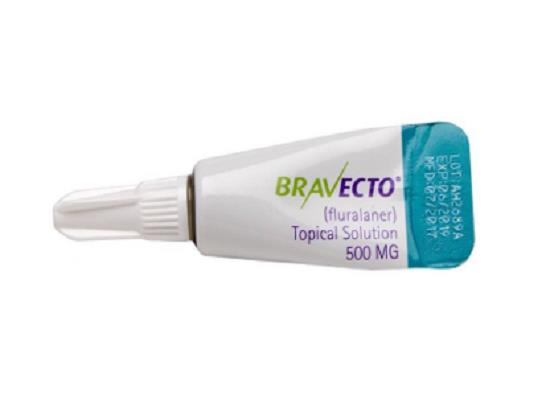
Figure 1. Topical Solution of fluralanerl
Pharmacokinetics
A study found that Fluralaner was well-absorbed into the blood from the site of administration and remained quantifiable in plasma for over 12 weeks. Pharmacokinetic profiles varied between different dose rates and exhibited longer mean plasma persistence and greater fluctuations in plasma concentration at higher doses. Mean corpuscular volume and mean corpuscular haemoglobin increased significantly over time, while alkaline phosphatase decreased significantly. Other significant changes observed included increases in sodium, albumin, and alanine aminotransferase, as well as a decrease in globulin. However, all values remained within or comparable to reference intervals, indicating that Fluralaner was generally safe for use. 1
Efficacy
Aarcoptic mange
Fluralaner appears to be a safe and effective treatment for sarcoptic mange in the bare-nosed wombat, with all study animals showing clinical resolution of mange within 3-4 weeks of treatment. A single dose of fluralaner was observed to last over 1-3 months, making it a potentially superior treatment option compared to macrocytic lactones. Fluralaner has advantages in terms of both economic costs and treatment effort, relative to moxidectin, which is currently the most commonly used alternative treatment. The recommended dose for the treatment of sarcoptic mange in bare-nosed wombats is 25 mg/kg of fluralaner administered using Bravecto Spot-On for Large Dogs as the most appropriate formulation for adult bare-nosed wombats. 1
Haemaphysalis longicornis ticks
A study found that orally administered fluralaner at a dose range of 25 to 50 mg/kg was highly effective in controlling Haemaphysalis longicornis ticks on dogs. The efficacy rate was greater than 90% at 114 days after treatment, while dogs treated at a lower dose of 10 mg/kg had an efficacy rate of 79%. This suggests that fluralaner is an effective and persistent treatment option for controlling H. longicornis ticks on dogs. 2
Filth flies
Fluralaner is effective in killing certain species of filth flies. Topically applied fluralaner outperformed permethrin for horn flies, but was less effective than permethrin for stable flies. Topical Fluralaner was also found to be generally more toxic than permethrin for four pyrethroid-resistant strains of house flies. Similarly, oral fluralaner was more toxic than imidacloprid and showed promise for the control of horn and house flies. Cross-resistance between fluralaner and other insecticides was slight. Overall, the results suggest that fluralaner has potential as a pesticide for controlling certain species of filth flies. 3
Mosquitocidal activity
Fluralaner has mosquito larvicidal activity against Aedes aegypti and Anopheles gambiae with LC50 values. However, fluralaner did not exhibit exceptional toxicity to adult mosquitoes in typical exposure paradigms when compared to fipronil. Fluralaner was also tested for its effectiveness in restoring nerve firing after GABA treatment in susceptible and cyclodiene-resistant fly strains. The study suggested that while there may be low cross-resistance in the presence of resistance, the moderate potency, low contact activity, and slow action of fluralaner make it unsuitable for use as a mosquitocide for vector control. 4
Safety![Article illustration]()
The research showed that fluralaner was safely tolerated by both juvenile and adult bare-nosed wombat s at standard and high dose rates. Fluralaner also remained present in detectable quantities in bare-nosed wombat plasma for over 90 days following administration. Furthermore, single doses of 25 mg/kg were effective in resolving mild to moderate SM and providing tick prophylaxis for at least one month, and up to 15 weeks based on efficacy trials. The use of Orange Power to dilute fluralaner into a pour-on format was found to be safe, easy, and economically feasible. 1
Reference
1. Wilkinson V, Takano K, Nichols D, et al. Fluralaner as a novel treatment for sarcoptic mange in the bare-nosed wombat (Vombatus ursinus): safety, pharmacokinetics, efficacy and practicable use [published correction appears in Parasit Vectors. 2021 Mar 5;14(1):140]. Parasit Vectors, 2021, 14(1):18.
2. Toyota M, Hirama K, Suzuki T, Armstrong R, Okinaga T. Efficacy of orally administered fluralaner in dogs against laboratory challenge with Haemaphysalis longicornis ticks. Parasit Vectors, 2019, 12(1):43.
3. Burgess ER, Geden CJ, Lohmeyer KH, King BH, Machtinger ET, Scott JG. Toxicity of fluralaner, a companion animal insecticide, relative to industry-leading agricultural insecticides against resistant and susceptible strains of filth flies. Sci Rep, 2020, 10(1):11166.
4. Jiang S, Tsikolia M, Bernier UR, Bloomquist JR. Mosquitocidal Activity and Mode of Action of the Isoxazoline Fluralaner. Int J Environ Res Public Health, 2017, 14(2):154.
You may like
Related articles And Qustion
See also
Lastest Price from Fluralaner manufacturers

US $0.00-0.00/g2024-12-24
- CAS:
- 864731-61-3
- Min. Order:
- 1g
- Purity:
- 99.99%
- Supply Ability:
- 20 tons
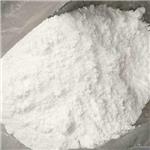
US $0.00/kg2024-12-17
- CAS:
- 864731-61-3
- Min. Order:
- 10kg
- Purity:
- 99% purity
- Supply Ability:
- 1000 kg
